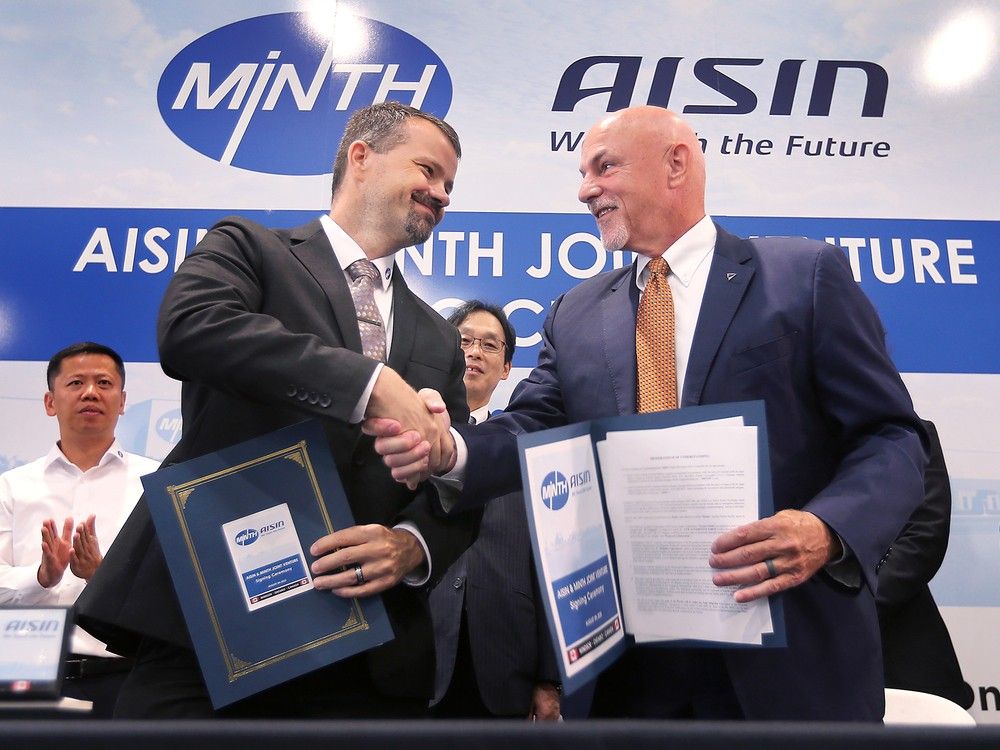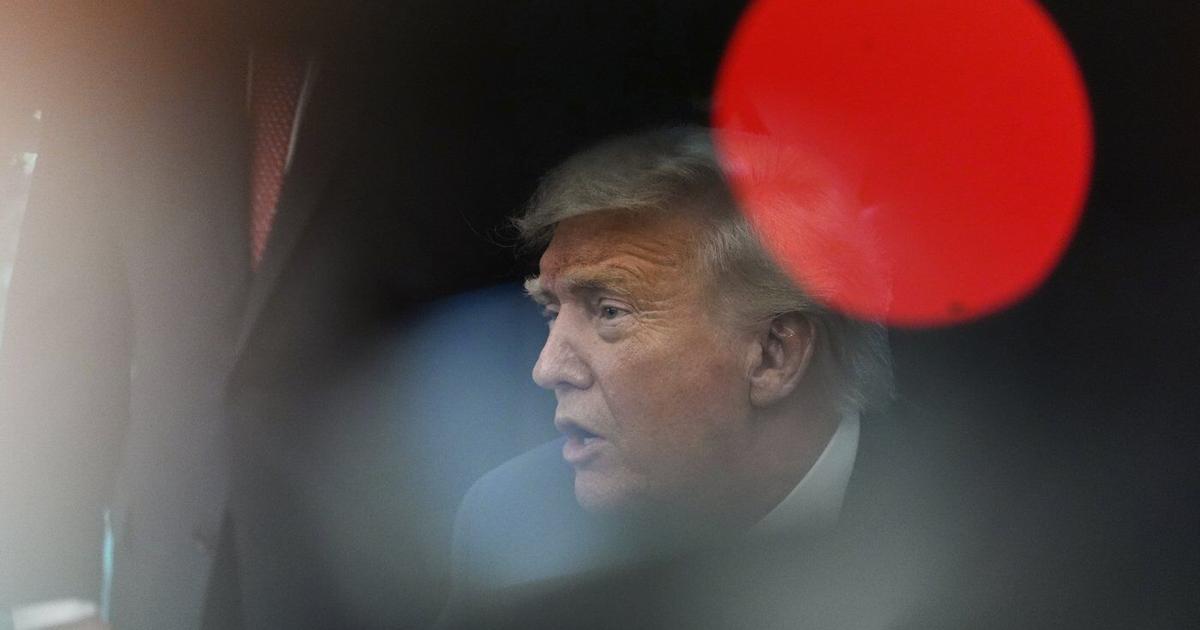- Reaction score
- 5,614
- Points
- 1,260
I’ll admit that it wasn’t what I was going for, but it works!I'll take "Clever Allusions to Big Dairy for $400, Alex"

I’ll admit that it wasn’t what I was going for, but it works!I'll take "Clever Allusions to Big Dairy for $400, Alex"
I thought it was exactky what you were going for lolI’ll admit that it wasn’t what I was going for, but it works!
I only wish I was that on the ball today!I thought it was exactky what you were going for lol
Fake it till you make it.I only wish I was that on the ball today!


The one potential wrinkle would be if the US were to unilaterally withdraw from the agreement in which case they would exit the agreement with six months notice. From Microsoft's AI overview:Have a read of this briefing by a law firm on USMCA, it’s a bit stale but still very useful in understanding the agreement.

North America Prepares for 2026 USMCA Review and Potential Renegotiation | White & Case LLP
The three parties to the United States – Mexico – Canada Agreement (USMCA) are beginning domestic consultations ahead of the scheduled 2026 joint review, which could lead to changes in the agreement. Under a novel provision in USMCA Article 34, the 2026 review also starts a 10-year clock for...www.whitecase.com
When I read this - it’s now clear that even if Trump decides to ‘walk away’ from USMCA in July of 2026, it still lives on for another 10yrs until 2036 when it would cease to exist. At anytime during those 10yrs all 3 parties can all agree to extend it for another 16yrs past 2036.
As a result - USMCA will be in effect until 2036, in its present form and no one can change it unless all 3 parties agree to the changes.
If the lawsuits making there way through the US courts ‘go our way’ and the tariffs put in place because to fentanyl are all thrown out, then both Canada and Mexicl will be the only 2 countries in the world to have no or virtually no tariffs against them. This puts us in a huge advantage. A German or Japanese or South Korean or French company whisking to ‘bypass’ the 15% traffic against then has a choice to set up shop to manufacture their product in the US OR in Canada or Mexico and have that product be allowed tax free into the US….
Yes, but only after July of 2026, so Jan of 2027 at the earliest- but this would be after the US midterm elections, which has the potential of the Democratics gaining control of Congress.The one potential wrinkle would be if the US were to unilaterally withdraw from the agreement in which case they would exit the agreement with six months notice. From Microsoft's AI overview:
In essence, the USMCA allows for a country to leave the agreement with six months' notice, but this action has the potential for serious consequences for the region's trade relationships.
- Article 34.6:
This article outlines the process for withdrawal. Any of the three countries (US, Canada, or Mexico) can choose to leave the agreement.- Six-Month Notice:
The withdrawing party must give the other two parties a written notice of their intent to withdraw.- Effective Date:
The withdrawal becomes effective six months after the notice is provided.- Unilateral Action:
This means that one country can decide to leave the agreement on its own, without needing the agreement or consent of the other two.- Potential for Disruption:
While the provision allows for withdrawal, it's important to note that such a move could create significant economic and political disruption for all three countries, especially those heavily reliant on trade with the US.
Technically the US could give their 6-month written notice of withdrawal tomorrow which would be February 2026, but as you say I can't see even Trump scrapping the deal all together. The markets would have a meltdown.Yes, but only after July of 2026, so Jan of 2027 at the earliest- but this would be after the US midterm elections, which has the potential of the Democratics gaining control of Congress.
I can’t see Trump being able to do something like this without the approval of the US Congress.
Too many US border states would never allow this to happen.
With any normal president the easy answer would be no, it would require an act of congress.Does Trump have the executive authority to unilaterally exit CUSMA or would it require an act of Congress?
Our best hope is the case in the courts. As much as people like to crow over Trump's slipping approval numbers, Democrats collectively are slipping more. They seem to be aiming for another "double-down" election cycle*.Accepting that hope is not a COA, our best hope is that the balance of power in Congress changes on November 3, 2026. A more militant, anti Trump congress would be a real barn-burner as it works to take back it's enshrined powers.

That would be one hell of a powerhouse, should such a deal happen.
Canada eyes Mercosur trade pact to reduce US reliance, minister says
Mercosur

They mention the Rebel News court case from late last year, saying, "The organization was one of the few in the country that produced critical reporting on the government’s response to protests of the COVID-19 lockdowns." The report had this to say on media subsidies:... During the year (2024), the Online News Act of 2023 came into force. The law required large digital media platforms pay news businesses when their content appeared on the platform. The law empowered the Canadian Radio-Television and Telecommunications Commission to set mandatory bargaining guidelines between platforms and news businesses and to otherwise enforce and set regulatory guidance for the act, including codes of conduct and eligibility of news businesses to participate, powers which could be used to discriminate against political speech or disfavored independent media outlets ...
Only problem with dropping C-18, though, is that media outlets now getting $ via Google will see that disappear.... The public media and majority of private media were substantially dependent on government sources of funding for their activities. Government intervention in the media market favored means of communication that did not diverge from government-suggested bounds of political speech, and government policy and practices often disadvantaged independent media.
The government used a variety of mechanisms to fund public and private sector media in the country, ranging from direct grants and tax credits to mandatory payments and funds collected from broadcasters, streaming services, and news platforms, but distributed or regulated by the government. News organizations faced direct and indirect pressure to conform their political speech in order to gain or maintain access to these funds, leading to self-censorship. Independent news organizations that did not take government funds faced a substantial market disadvantage ...
It's been announced that Canada is removing counter-tariffs on some US goods (those that are compliant with CUSMA) and a goodwill gesture to try and move the trade talks forward. Auto, steel and aluminum tariffs will remain.
CUSMA is our vital ground. If we want to keep that we have to honour it. I would not be surprised if Trump threatened to walk away from the CUSMA agreement, though I’m surprised none of the reporters bluntly asked that.It's been announced that Canada is removing counter-tariffs on some US goods (those that are compliant with CUSMA) and a goodwill gesture to try and move the trade talks forward. Auto, steel and aluminum tariffs will remain.
Is that what someone told you?Having all those elbows up will give you a cramp after a while.
Trump could easily say, 'You know what, we are going to only have USMA going forward, we don't want to deal with those nasty Canadians anymore', and where would that leave us?CUSMA is our vital ground. If we want to keep that we have to honour it. I would not be surprised if Trump threatened to walk away from the CUSMA agreement, though I’m surprised none of the reporters bluntly asked that.
Loss of CUSMA and eating a flat rate tariff would be economically devastating, and Trump would be belligerent enough to do that. This may be part of weathering the Trump storm and improving our trade ties again in future when someone more economically competent is in charge down there.
